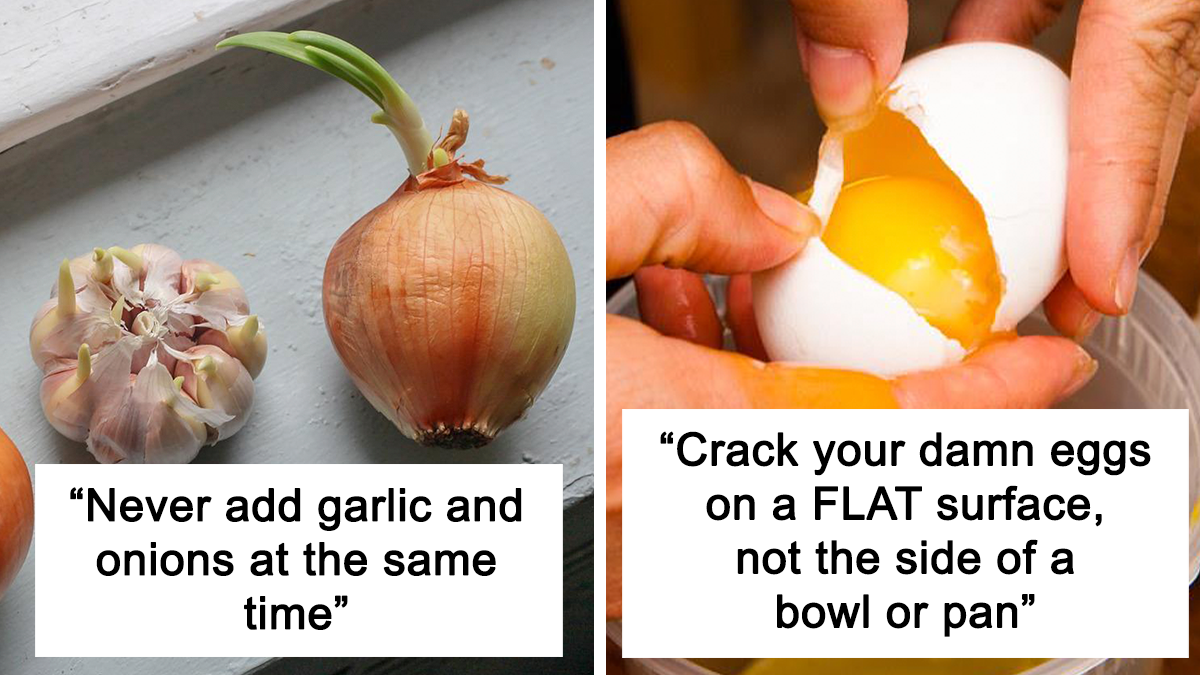Whether you’re a cooking aficionado with a burning fire (and often, burnt fingertips) for everything food-related or, on the contrary, entrust your taste buds to your holy kitchen majesty, aka the microwave, you can always take your inner chef to a whole new level. And it’s easier than you’d think.
Thanks to the professional chefs of Reddit, who recently shared what simple things “we're probably all doing wrong in the kitchen” in this thread, we can roll up our sleeves and work on the actual things to improve them.
Think of simple things, like never adding an onion and garlic at the same time (so you don’t have that icky burnt garlic aftertaste in a meal you otherwise put your heart into) or having things, ingredients and tools ready at hand to avoid “someone, help me!”-kind of hysteria in the middle of meal prep. Take your notes, everyone, I already have mine.
This post may include affiliate links.
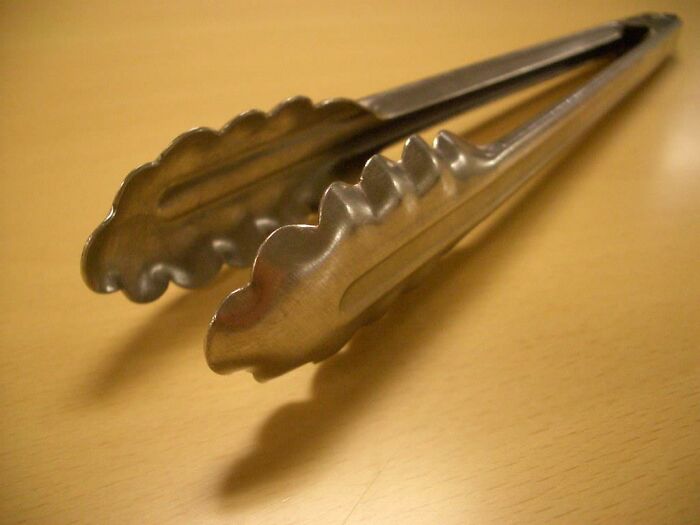 Using tongs, you must clink them together at least five times to channel your inner crab.
Using tongs, you must clink them together at least five times to channel your inner crab.
Let’s face it, regardless of how fast we binge-watched Top Chef, Hell's Kitchen, The Great British Bake Off, Masterchef in all countries it aired in, we didn’t actually learn to cook better. Instead, we now know all about the drama, about the blessing and the curse of being a chef, about nurturing your talent, dreaming hard and working harder… Wait, are we still talking about cooking?
So in order to take us all back to Earth, or rather our kitchen counter, and to find out what exactly we can do to improve our cooking game, since we nailed the watching part already, we spoke with Beth Moncel, a food lover and the founder of “Budget Bytes” where she has been sharing her passion for cooking and delicious recipes designed for small budgets since 2009.
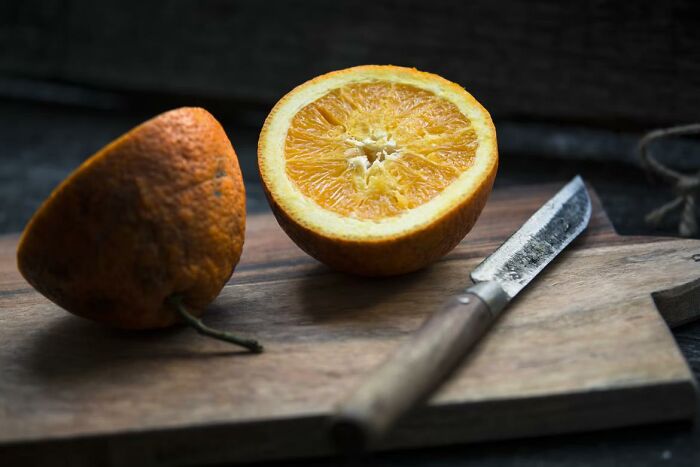 Since I didn't see it in here: instead of adding more salt, try adding an acid. A splash of vinegar or lemon/lime juice can make flavors pop without over salting.
Since I didn't see it in here: instead of adding more salt, try adding an acid. A splash of vinegar or lemon/lime juice can make flavors pop without over salting.
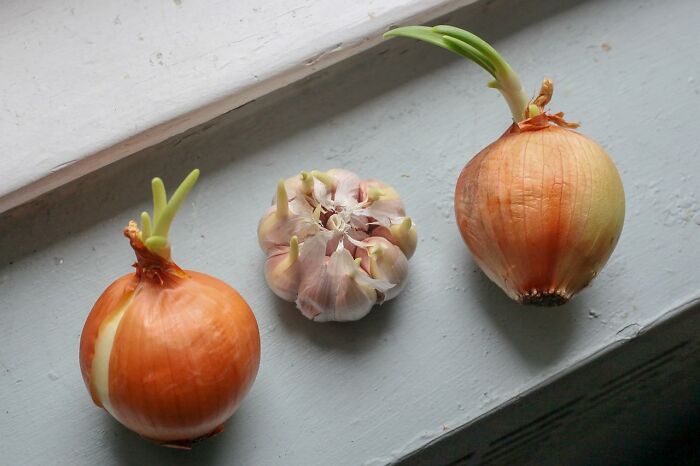 Never add garlic and onions at the same time.
Onions take about 8 minutes to saute and garlic takes about 30 seconds. If you add them together you're gonna have burnt, bitter garlic.
Never add garlic and onions at the same time.
Onions take about 8 minutes to saute and garlic takes about 30 seconds. If you add them together you're gonna have burnt, bitter garlic.
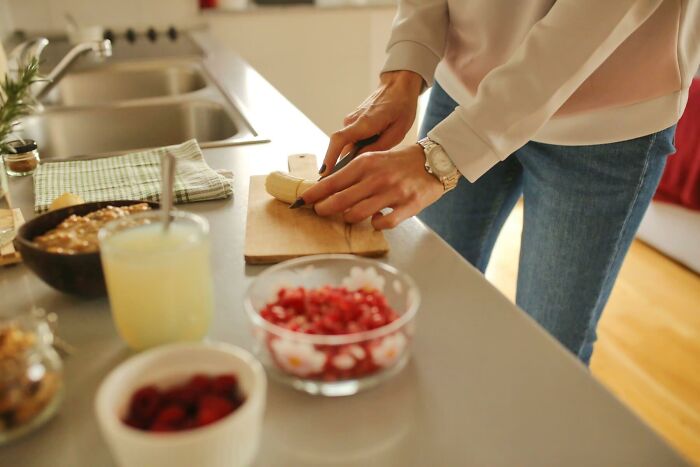 Clean as you go. Throw away trash, wipe up what you spill, get unnecessary utensils out of the way. If your kitchen looks like a tornado struck after you're done cooking, you f*cked up.
Clean as you go. Throw away trash, wipe up what you spill, get unnecessary utensils out of the way. If your kitchen looks like a tornado struck after you're done cooking, you f*cked up.
When asked what are the most common cooking mistakes people tend to make, Beth said it’s assuming that if they swap out an ingredient, they'll still get the same result. “Changing ingredients often changes both the flavor and texture of a dish, and in some cases can drastically affect the chemical reactions needed to make a recipe work,” she explained.
Salt your damn pasta water. Salt it liberally.
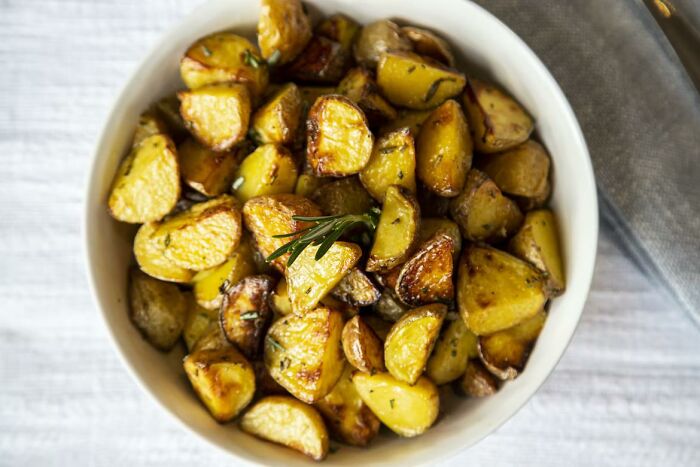 If you want perfect roasted potatoes (oven roasted, chopped pieces) with crispy outside and fluffy insides then boil them for about 5-10 minutes in salt water first. Then roast them.
If you want perfect roasted potatoes (oven roasted, chopped pieces) with crispy outside and fluffy insides then boil them for about 5-10 minutes in salt water first. Then roast them.
And if you want them extra extra crispy you should try the belgian double roasting technic. Wash them with salt water and dry them. then roast them on a lower temperatur very short then let them cool on a paper and roast them on higher temperatur until crispy
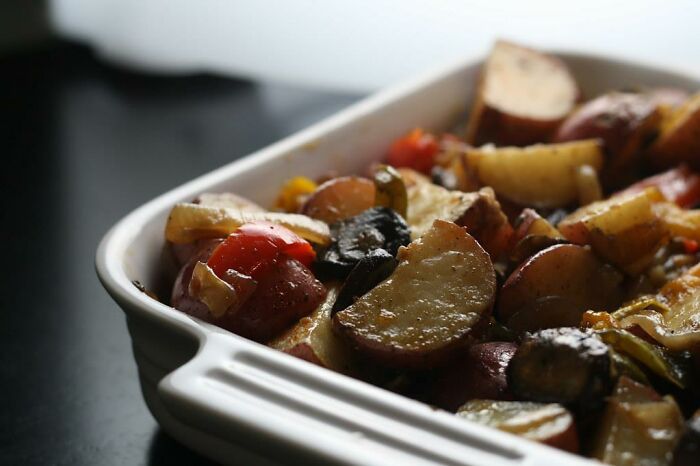 Most people suck at roasting vegetables. Brussel sprouts are the number one f*ck up and most people lose their sh*t when I serve them properly done brussels.
Toss with olive oil (more than you think), salt (more than you think), and any other herbs/spices (e.g. curry spices with cauliflower), lay cut side down on a baking sheet, and throw that sh*t into a 200C/400F oven until it's visibly browned. Depending on the veggie (e..g carrots) you'll probably want to turn over to the otherside and continue roasting for a bit. Once they're done you can toss with pepper or fresh/delicate herbs before serving (e.g. mushrooms with tarragon or parsley).
Just because it's fork tender and cooked through doesn't mean it's delicious. Yet.
Most people suck at roasting vegetables. Brussel sprouts are the number one f*ck up and most people lose their sh*t when I serve them properly done brussels.
Toss with olive oil (more than you think), salt (more than you think), and any other herbs/spices (e.g. curry spices with cauliflower), lay cut side down on a baking sheet, and throw that sh*t into a 200C/400F oven until it's visibly browned. Depending on the veggie (e..g carrots) you'll probably want to turn over to the otherside and continue roasting for a bit. Once they're done you can toss with pepper or fresh/delicate herbs before serving (e.g. mushrooms with tarragon or parsley).
Just because it's fork tender and cooked through doesn't mean it's delicious. Yet.
Unfortunately, not liking brussels sprouts might be genetic: https://www.centreofthecell.org/blog/science-questions/why-do-some-people-hate-brussels-sprouts/. According to various studies, some people have a hereditary high sensitivity to phenylthiocarbamide, which leads to a very bitter taste even in trace amounts. If you have two of these genetic TAS2R38 markers, no preparation or seasoning can make brussels sprouts edible for you.
Beth reminds everyone that the best way to gain confidence in the kitchen is to practice. “Don't let a failed recipe keep you from trying again. Try new recipes often. The more you cook, the more you'll understand the nuances of cooking and you'll build intuition,” she said. “Before you know it, you'll be cooking freestyle and you won't even need a recipe!” Beth concluded positively.
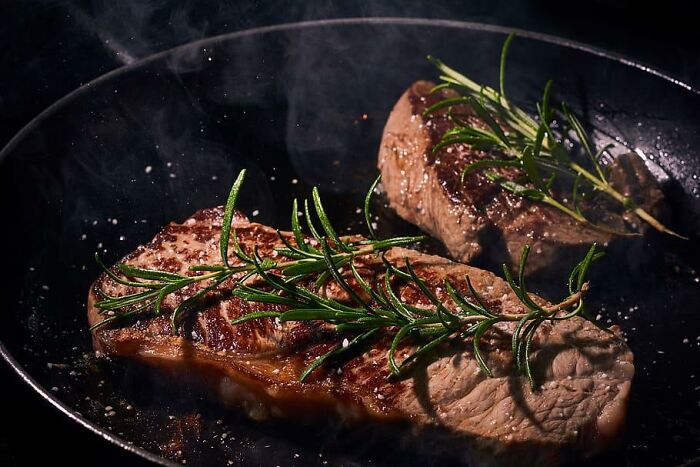 There is a really simple rule when cooking a steak: Leave the steak alone. Stop f*cking with it. Stop poking and prodding and moving it an flipping it around. Let it cook. Let the heat do what it's supposed to do. Get to know your heat source and learn to trust it. Almost everybody I know violates this rule.
There is a really simple rule when cooking a steak: Leave the steak alone. Stop f*cking with it. Stop poking and prodding and moving it an flipping it around. Let it cook. Let the heat do what it's supposed to do. Get to know your heat source and learn to trust it. Almost everybody I know violates this rule.
I leave my steak alone, put a timer on, used a meat thermometer, rest it and I still manage to f**k it up. Tried a few different methods and have only managed to get it right ONCE. Followed the same method a few more times without success. Have no idea what I'm doing wrong.
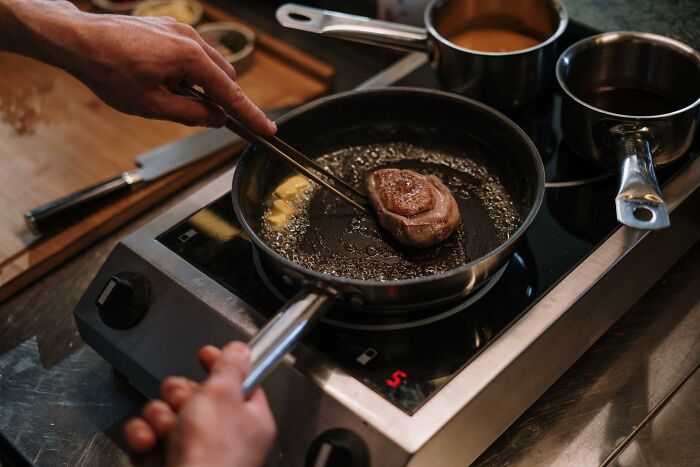 It is the fat that carries the flavor. If your going to saute something, put the herb and spices with the butter or oil that is in the skillet. Don't put them in the flour you're using to bread the food.
It is the fat that carries the flavor. If your going to saute something, put the herb and spices with the butter or oil that is in the skillet. Don't put them in the flour you're using to bread the food.
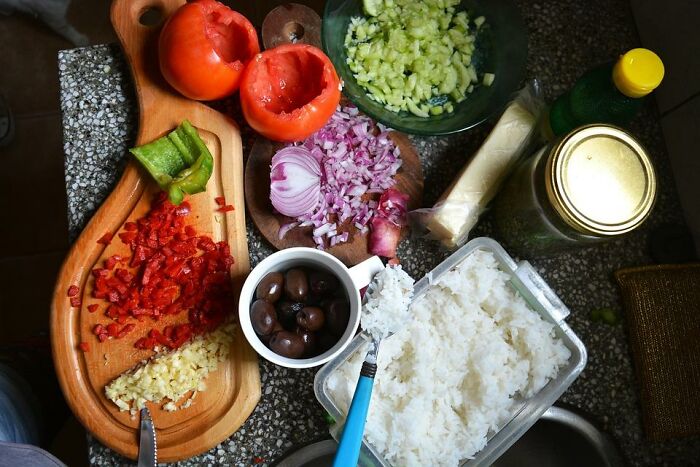 Not having things ready and in place.
Have you ever been halfway done with a dish and realize you didnt have the cheese grated? Now everything is on hold (and over cooking) while you grate cheese?
Having everything ready to go at the start lets you add the things when they need adding and helps put dishes out at the appropriate time.
Not having things ready and in place.
Have you ever been halfway done with a dish and realize you didnt have the cheese grated? Now everything is on hold (and over cooking) while you grate cheese?
Having everything ready to go at the start lets you add the things when they need adding and helps put dishes out at the appropriate time.
Don’t stare at a toaster, it will jumpscare you. (Learnt this from personal experience)
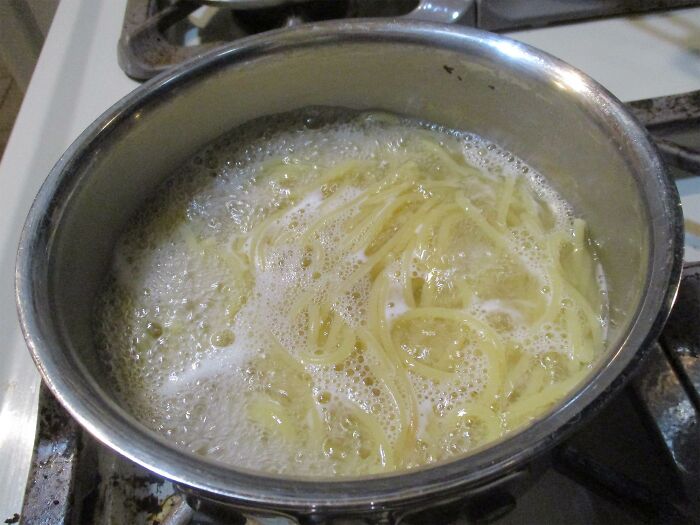 Putting oil in the pot when you're boiling pasta. If you do that, the sauce will just slide right off your pasta. The starchier the water, the better the sauce will stick.
Putting oil in the pot when you're boiling pasta. If you do that, the sauce will just slide right off your pasta. The starchier the water, the better the sauce will stick.
Nah, I finish cooking the pasta in the sauce. Makes it so much tastier.
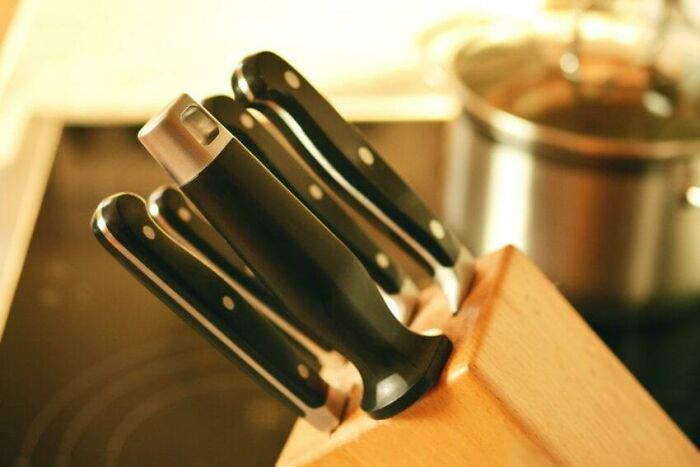 Sharp knives. Makes things a million times easier, and is actually sooo much safer in the end. Combined with the proper grip and a bit of practice, and suddenly cutting things for prep goes from the most hated step of everything to just another step, maybe even becomes fun for some people.
Sharp knives. Makes things a million times easier, and is actually sooo much safer in the end. Combined with the proper grip and a bit of practice, and suddenly cutting things for prep goes from the most hated step of everything to just another step, maybe even becomes fun for some people.
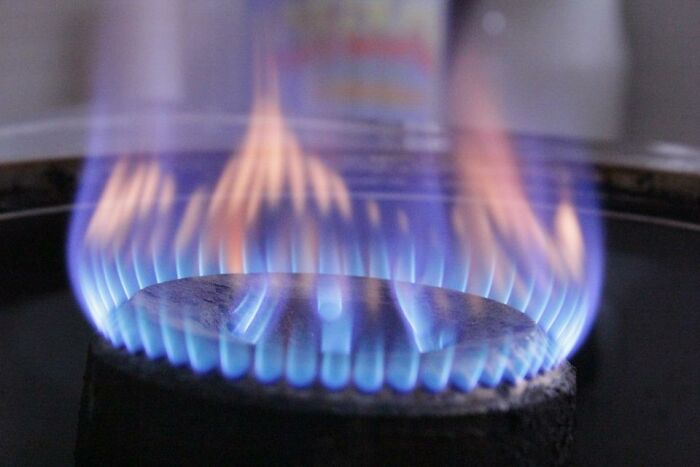 Cooking too hot to speed things up. If the recipe calls for something to cook for one hour at 350 degress, cooking it at 425 degrees for 35 minutes is not a substitute. Some things just need to be cooked slowly and gently.
Cooking too hot to speed things up. If the recipe calls for something to cook for one hour at 350 degress, cooking it at 425 degrees for 35 minutes is not a substitute. Some things just need to be cooked slowly and gently.
You're more likely to undercook the inside and over cook the outside if you do that.
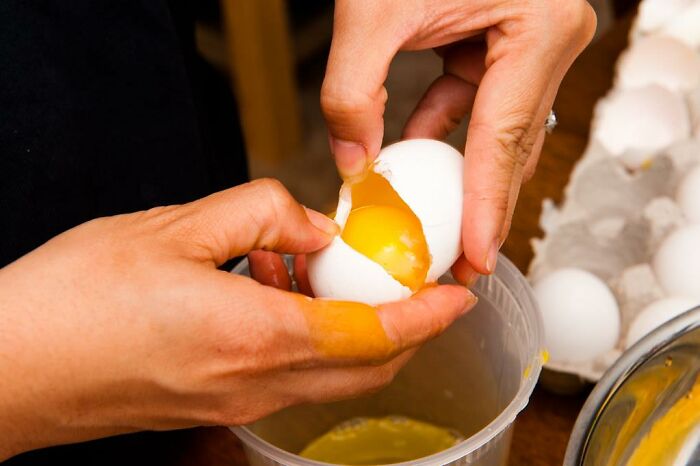 Crack your damn eggs on a FLAT surface, not the side of a bowl or pan. Cracking on a flat surface makes it easier to open as well as preserving your yolk. If you crack it on an edge it pushes shell inside the egg and is more likely to break the yolk (which sucks if you are making it sunny side up, poached or separating whites) Also, if by some chance there is bacteria or icky gross stuff on the shell it is more likely to contaminate the inside when shell gets pushed in.
Crack your damn eggs on a FLAT surface, not the side of a bowl or pan. Cracking on a flat surface makes it easier to open as well as preserving your yolk. If you crack it on an edge it pushes shell inside the egg and is more likely to break the yolk (which sucks if you are making it sunny side up, poached or separating whites) Also, if by some chance there is bacteria or icky gross stuff on the shell it is more likely to contaminate the inside when shell gets pushed in.
After 50+ years of cracking eggs on the side of the bowl, I’m good. Doing it on a flat surface for me just makes a mess, actually. 🤣
My chef brother-in-law taught me how to deglaze a pan to make a sauce like a boss. Leave it hot, and douse it with a cup or more of wine, stock, or water, and you can turn even basic things into an amazing pan of goodness! The stuff in your pan that you're scrubbing off after you're done cooking is all the good sh*t, so learn to deglaze!
It is not even about LEARNING to deglace, the key is just doing it and realizing that the pan residue is your friend. You can make amazing sauces with it, often you do not even need to thicken them. Of course, this only is true if none of the ingredients are burnt, and deglacing works best with cast iron or steel pans. Sorry, but your easy-to-clean-teflon-coated skillet simply is not suitable.
-Under salting your food! Everyone is so afraid of sodium but the vast majority of sodium in your diet is coming from processed snacks and fast foods not home cooking. -Also dry your meat before you sear or sauté it. You’re steaming it if not. -Taste as you go.
Being afraid of fattier cuts of meat. People are so used to that boneless skinless chicken breast that they sub them out for recipes that are 10,000x better using chicken thighs instead. If your primary concern is to reduce fat, sure, but if you're eating in moderation or going for flavor instead of low-fat, thighs thighs thighs my friend.
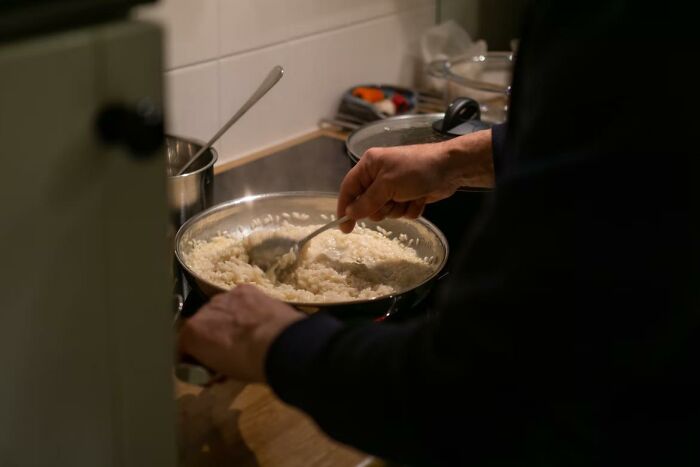 Practice your recipes. Don’t find one risotto you like and never make a different one. Cook 10 different risottos two or three times each over a long period of time. Doing this helps you understand the basics of how to make it and allows you to spot bad recipes, recognize good ones, and improvise without one.
Practice your recipes. Don’t find one risotto you like and never make a different one. Cook 10 different risottos two or three times each over a long period of time. Doing this helps you understand the basics of how to make it and allows you to spot bad recipes, recognize good ones, and improvise without one.
Idk if this will get buried but my dad is a chef and I know what he would say here. Always keep trying new things, in different preparations, with different ingredients to compliment them. And if you think you hate a specific meal or ingredient but you haven't tasted it in 10 years, give it a try again. We were never picky eaters as kids because we were always encouraged to just try things we were unsure about and it opened me up to so many great foods as an adult! So many people get stuck with what they know for sure they like, not even realizing how much it limits you.
Unless it Marmite! If you didn't like when you tried it 30 years ago, you're still not going to like it!
Leave your meat out to go to room temp before you cook it.
My dog would snatch it off the counter the second I turn my back!
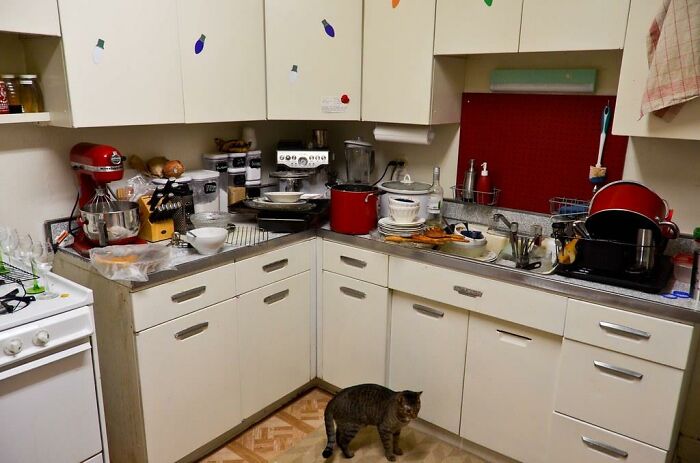 Way too many people over clutter their kitchen and think they need a gadget for everything. In reality, a well-crafted, sharpened French knife, a pairing knife and a peel can get you a long way.
MISE EN PLACE! Everything has a place and everything has a purpose.
Also, steak should never be cooked to more than medium.
Way too many people over clutter their kitchen and think they need a gadget for everything. In reality, a well-crafted, sharpened French knife, a pairing knife and a peel can get you a long way.
MISE EN PLACE! Everything has a place and everything has a purpose.
Also, steak should never be cooked to more than medium.
Nothing wrong with a well done juicy steak. Some people know how to cook well done steaks and keep them juicy, tender and flavorful.
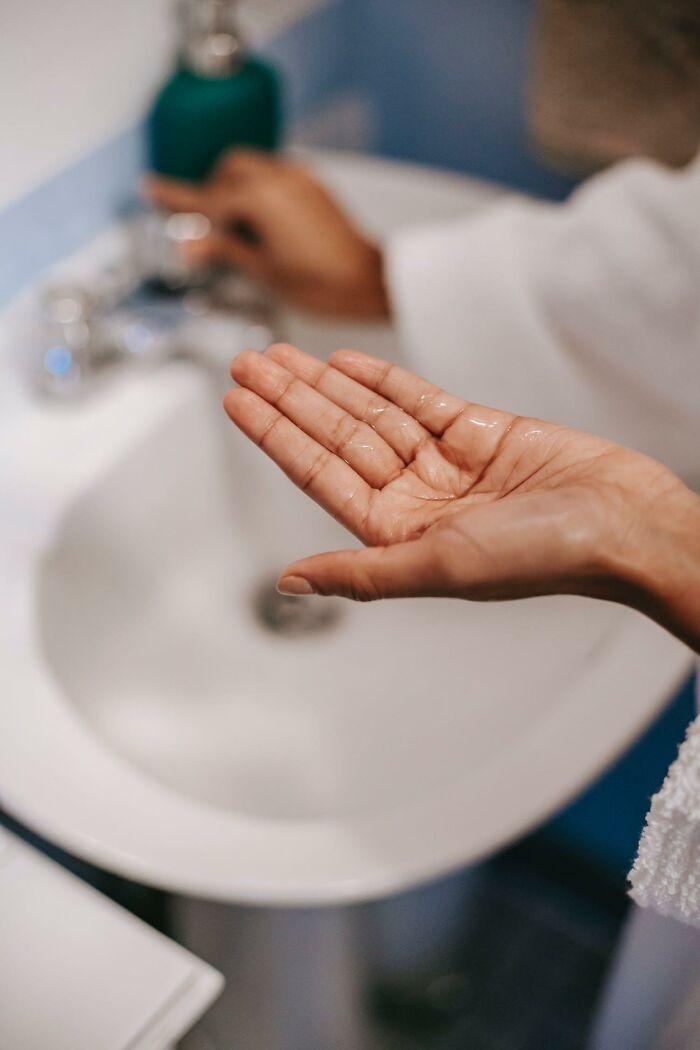 Not sanitizing your hands and work area after handling raw meat, especially chicken.
Can't count the number of times I've been cooking with friends or family and have to stop them from chopping salad veggies on the same cutting board as raw meat, or running their hands under cold water for a second to 'clean them' before going to grab stuff out of the fridge or drawer or even just going about their day.
Same goes for giving your slimy raw-chicken cutting board a quick scrub to wash it using the same sponge you use for everything else.
If it's touched raw meat, it needs to be throughly cleaned and sanitized with hot water and either soap (your hands) or bleach (everything else).
Not sanitizing your hands and work area after handling raw meat, especially chicken.
Can't count the number of times I've been cooking with friends or family and have to stop them from chopping salad veggies on the same cutting board as raw meat, or running their hands under cold water for a second to 'clean them' before going to grab stuff out of the fridge or drawer or even just going about their day.
Same goes for giving your slimy raw-chicken cutting board a quick scrub to wash it using the same sponge you use for everything else.
If it's touched raw meat, it needs to be throughly cleaned and sanitized with hot water and either soap (your hands) or bleach (everything else).
Don't buy tomatoes that are pink and have no smell. Fresh, good heirloom tomatoes should have a distinct smell and be nice and red/solid yellow. The walmarts and safeway's of the world are selling you these horrific non-tomato tomatos....devoid of flavor and frequently unripe. Don't do it.
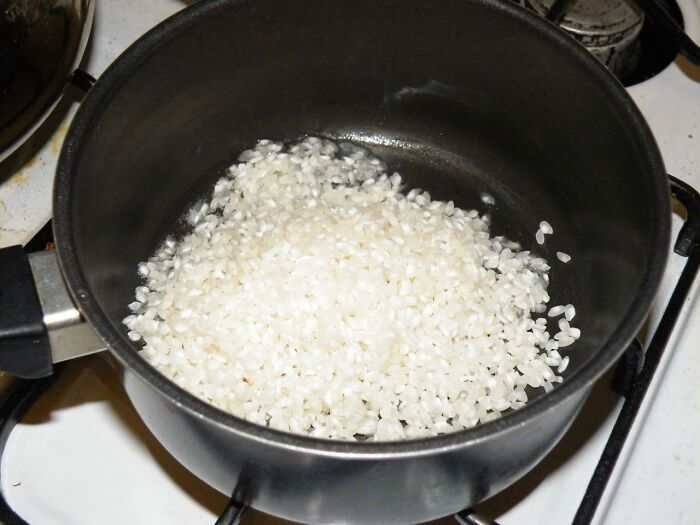 If you have to drain your rice after cooking it, YOU'RE DOING IT WRONG!
You should be measuring your rice:water as 1:2 ( 1 cup rice : 2 cup water. Get proper measuring cups, don't use a coffee mug...) and you should no liquid left if cooked properly. Simmer on low after initial boil, lid closed, fluff with a fork about 3/4 of the way, that's it.
And wash the rice until water runs clear. Othersie you're eating dust and bug poop ( Basmati and Jasmine rice mainly...don't wash arborio rice)
MY entire process is:
-Wash rice thoroughly under cold water
-Place washed/drained rice in clean pot and set on stove on low-med heat to slowly dry and toast the rice.
-Add 2bsp oil to the hot dry rice and make it sing, but should not get any color!
-Boil water in your kettle; add salt, pepper and other seasoning(Chicken stock powder is great for rice..or you know, MSG) to your measuring cup, dissolve with the water.
-Dump all the liquid in the pot; it will boil virgorously for like 5 seconds, don't be scared.
-Lower heat to a simmer, cover with the lid ( Big plus if it has a small vent)
-Fluff with a fork at 10mins in, then about 5mins later it should be ready to serve.
If you have to drain your rice after cooking it, YOU'RE DOING IT WRONG!
You should be measuring your rice:water as 1:2 ( 1 cup rice : 2 cup water. Get proper measuring cups, don't use a coffee mug...) and you should no liquid left if cooked properly. Simmer on low after initial boil, lid closed, fluff with a fork about 3/4 of the way, that's it.
And wash the rice until water runs clear. Othersie you're eating dust and bug poop ( Basmati and Jasmine rice mainly...don't wash arborio rice)
MY entire process is:
-Wash rice thoroughly under cold water
-Place washed/drained rice in clean pot and set on stove on low-med heat to slowly dry and toast the rice.
-Add 2bsp oil to the hot dry rice and make it sing, but should not get any color!
-Boil water in your kettle; add salt, pepper and other seasoning(Chicken stock powder is great for rice..or you know, MSG) to your measuring cup, dissolve with the water.
-Dump all the liquid in the pot; it will boil virgorously for like 5 seconds, don't be scared.
-Lower heat to a simmer, cover with the lid ( Big plus if it has a small vent)
-Fluff with a fork at 10mins in, then about 5mins later it should be ready to serve.
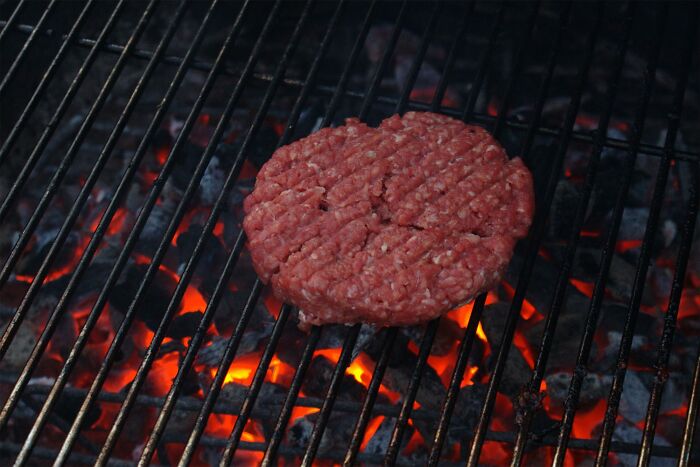 Pressing/squashing burger patties down as they cook on the BBQ (you're just making them drier by squeezing out the juices IMHO)
Pressing/squashing burger patties down as they cook on the BBQ (you're just making them drier by squeezing out the juices IMHO)
Ex-chef here, and this is a dumb one but I've seen it so many times in student halls. Don't microwave a f*cking steak, or eggs, to cook it.
NOT using a mandolin for all your veg. A good one, not the cheapo plastic ones. Where it can take a good 45 minutes to matchstick fine dice your carrots, courgette, red onion, garlic, red, green & yellow bell pepper & ginger.... All this will take about 15 minutes with a nice quality mandolin. Make sure you get a finger guard and use it, and always use the utmost caution with the beast & go slowly until you gain confidence through repeated uses. Once you've mastered the mandolin, your knives won't leave the butcher block as often as they used to. Get one with the V configuration, not one that's just a slant, those are rubbish. Seriously, mastering the mandolin changes everything in terms of prep time. It's amazing how fast tomatoes get sliced, how blissfully paper thin fine you can get your onions in just a few seconds! I love that thing. I have one with a handle & a knob that adjusts the depth of the blade, all in one. I think it cost about 70 bucks.
Toss your hardboiled eggs in an icewater bath right when they're done to make them peel easier.
Even on the food network I see chefs cut the top off of bell peppers and then pull out the seeds. Bell peppers are shaped like a cube, just slice from the top down on all 4 sides and you will end up with easily chopable or sliceable pieces. The only time you chop the top off is if you need rings.
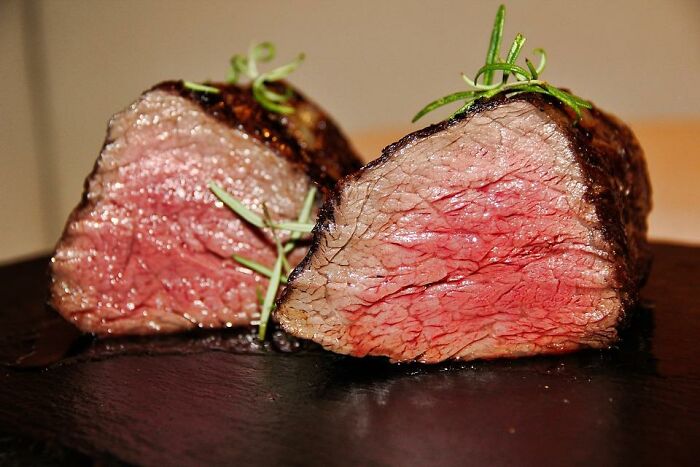 Never letting meat rest... not keeping sharp knives, and just knife work in general... cooking should be simple and easy... fighting with prep work is never fun.
Never letting meat rest... not keeping sharp knives, and just knife work in general... cooking should be simple and easy... fighting with prep work is never fun.
Putting you knives in a drawer. It ruins the edge. A dull knife is a dangerous knife. (Because you can’t slice through the food and you struggle, this results in an injury.)
Just finished that awesome, wholeseome, home cooked and hot delicious meal? Don't put it on a cold plate from the cabinet. Some ovens have a warm plate setting or even keeping a stack in hot water and drying them off right before plating can keep a hot meal hot. I always hated cooking an awesome dinner and then by the time I've served everyone and sat down my food is cold because its sitting on an ice cold plate. Hell even some of the newer dishwashers have a plat warmer setting.
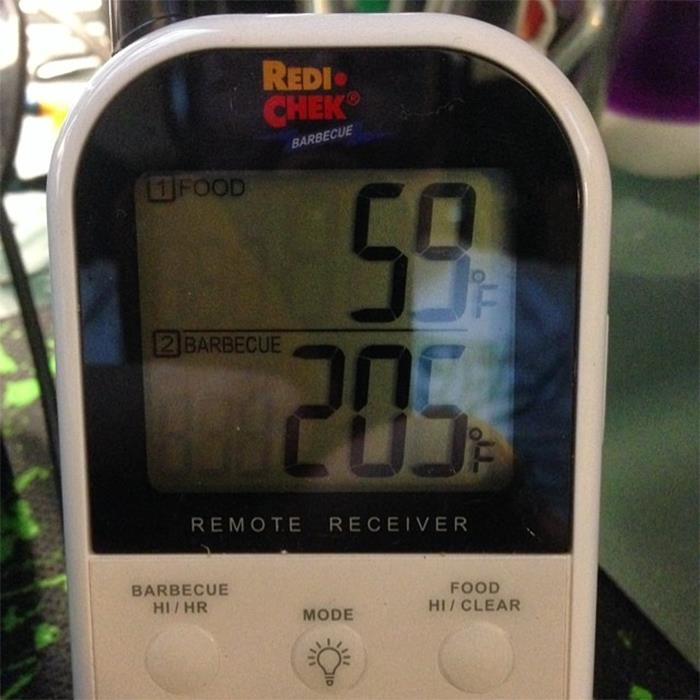 Not using a thermometer when cooking meat.
By using a thermometer, even a novice cook can be sure that they are cooking their meat to the desired level of doneness. You may not need to use a thermometer after you've cooked a certain cut of meat a few times, but for new recipes and types of meat , a meat thermometer gives you confidence and precision.
Not using a thermometer when cooking meat.
By using a thermometer, even a novice cook can be sure that they are cooking their meat to the desired level of doneness. You may not need to use a thermometer after you've cooked a certain cut of meat a few times, but for new recipes and types of meat , a meat thermometer gives you confidence and precision.
it's amazing how easy it is to level-up your cooking with a good set of thermometers in the kitchen. it might be the best money-to-benefit ratio of all kitchen tools. I have an instant-read probe, leave-in clamp-to-the-side-of-the-pot type, infrared gun, and leave-in probe with alarm. Example: coffee is best brewed at around 190-195F - brewing with water fresh off the boil >200F will impart extra bitterness (not the good kind). Having a good thermometer at hand makes this so easy. I'd hate to deep fry anything and have to guess at the temp: being sure that I'm in that 350-375F sweet spot gives me consistent and repeatable results every time.
Do not EVER put a good knife through a dishwasher.
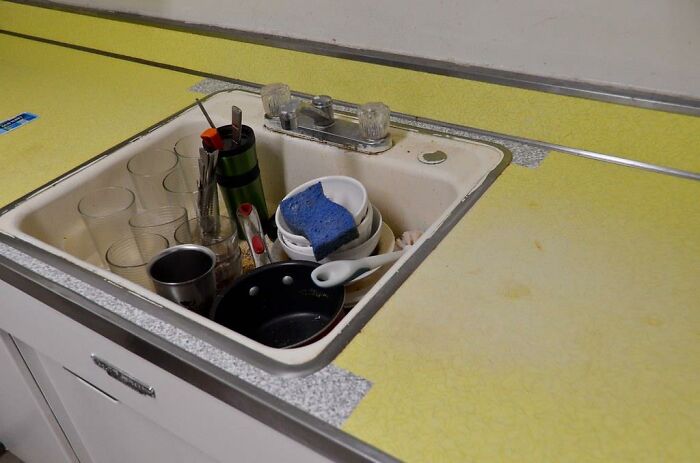 Never put knives under soapy water EVER. I once saw someone put one in and they sliced their hand pretty deep, don’t know how.
Never put knives under soapy water EVER. I once saw someone put one in and they sliced their hand pretty deep, don’t know how.
Iodized salt (table salt) is not the same grade as kosher salt. Makes things taste way salty and metallic. Go for either Morton's kosher salt which is a dense salt or Diamond Crystal which is a lighter flaky salt. And keep the salt in a bowl, makes it easier to just grab a pinch and season whatever you're cooking with
Don't put raw onions in a casserole or meatloaf and expect them to cook properly.
Food safety. I don't know how many times I've seen folks cross-contaminate, not wash their hands, leave ingredients (or finished product that is perishable) out too long, etc.
I'm such a stickler for handwashing and sanitizing. I used to work in a restaurant and I went to a trade high school for Culinary Arts for 4 years, so I understand the importance. But I have to admit I cross contaminate at home all the time. I don't think twice about cutting stuff all together. And it's so crazy because I know better and like I said, at work, I used to be so cautious. I do still wash my hands like a doctor at home because it just became such a habit but I'm so bad when it comes to using the same cutting board and knives.
Not a chef, but cover the pan when you're frying eggs and you get perfect sunny side up.
A good tip is also to turn up the heat until the yolk / white begins to solidify then turn the heat right down
If you don't have a stove powerful enough to cook Asian food (most aren't) put the wok in a really hot oven (450-500+) for 10-15 minutes. The residual heat should be enough to stir fry properly. A cast iron wok is even better because it holds the heat longer.
When you add fresh basil leaves or sun dried tomatoes to a pizza or something similar, don’t put them on top. Both of these items burn very easily and unless you want them charred, don’t put them on top of the dish. Also, if you want to cut onions without having the juices make you cry, chill them first, then chop them while they’re chilled. Not exactly a ‘what you’re doing wrong’ fact, but it’s a neat tip.
Add basil (and a bit of some really good olive oil) when you bring the pizza out from the oven
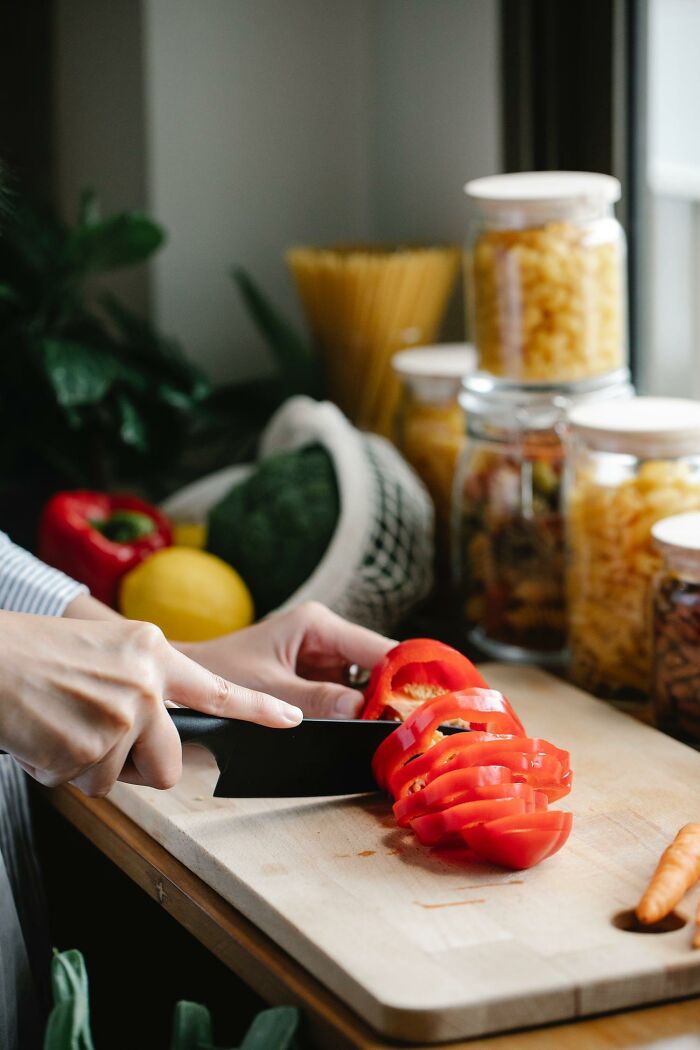 When scraping ingredients off the cutting board use the non-bladed edge. Fresh pasta tastes 1000% better than boxed and takes a fraction of the time to cook and is probably a dollar more than boxed pasta. Adding salt & pepper to even the sides of the meal can really improve the flavor. Let the meat rest the same amount of time it was cooked. Most meat can be cooked on medium-high in a pan (best temp)
When scraping ingredients off the cutting board use the non-bladed edge. Fresh pasta tastes 1000% better than boxed and takes a fraction of the time to cook and is probably a dollar more than boxed pasta. Adding salt & pepper to even the sides of the meal can really improve the flavor. Let the meat rest the same amount of time it was cooked. Most meat can be cooked on medium-high in a pan (best temp)
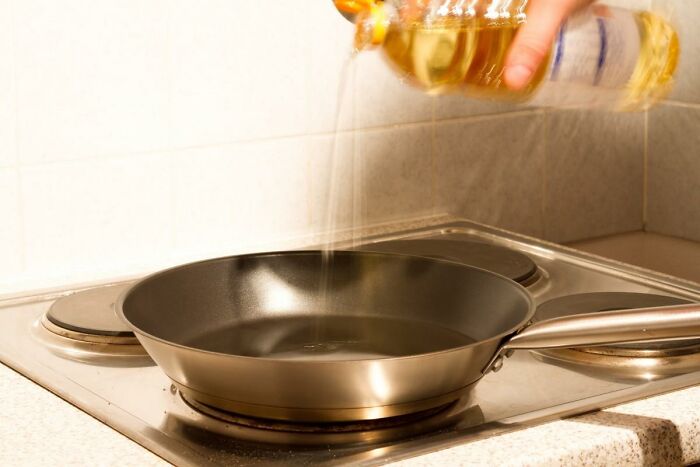 Don’t cook with extra virgin olive oil.
It’s an oil with a low burning point that when it reaches a certain temperature it turns it from a mono-saturated fat to a poly-saturated fat. So it is no longer healthy and you’ve just bought expensive oil that is no longer having any health benefits.
Also, when it reaches the temperature that turns it unhealthy, it actually creates an acrid flavoured which most people don’t realise that’s where the acidity flavour is coming from in their food.
Don’t cook with extra virgin olive oil.
It’s an oil with a low burning point that when it reaches a certain temperature it turns it from a mono-saturated fat to a poly-saturated fat. So it is no longer healthy and you’ve just bought expensive oil that is no longer having any health benefits.
Also, when it reaches the temperature that turns it unhealthy, it actually creates an acrid flavoured which most people don’t realise that’s where the acidity flavour is coming from in their food.
Home made Chips (or fries) I cut them then salt them and pop them in the fridge, take them out after a while then pat them down to get any excess water so when I shallow fry them for my kid they're crispy on the outside and fluffy inside. Pre-salt your chips .. or fries before frying it draws out excess water from the spuds.
Evene better results are archieved by two-step-frying: After cutting the potatoes, fry them at a lower temperature, then take them out and let them cool. Fry them for a second time - very hot this time, and they will be very crunchy while retaining their inner softness. Pre-salting fries is not a good idea, though, as it ruins the frying grease.
Thinking that the truing-rod/truing-steel in your knife block is a sharpener. No, it does not sharpen the knife. A sharpening block does that. The rod is for truing - which is correcting the edge alignment to the center, but this doesn't actually sharpen the knife, which involves grinding off small amounts to form the edge.
Pâtissière here, not working in the field anymore because started college, but yay, I have some mild experience. Keep the receipt near you. It doesn't matter if you know it by heart, just keep it near you, because bakery and pastry are a hit or miss: the moment you f*ck up, there's no going back, you have to do it all over. Many people think that keeping the receipts near is "unprofessional" and it's better to just know them by heart (what's actually a big plus, I truly recommend you to know stuff by heart as well) but trust me, when you have to bake and decorate over 20 different desserts before the day even start, it's better to be safe than sorry. You don't want to f*ck up royally and have to redo a whole loaf of sweet bread when you are about to open/your relatives are coming to a family reunion, because baking takes a lot of time.
Add herbs and spices during the frying stages, always let your food simmer before serving, lid off low heat. When adding chilli's to dishes the heat will draw out over time, if you can't taste it immediately wait for the dish to simmer for a while.
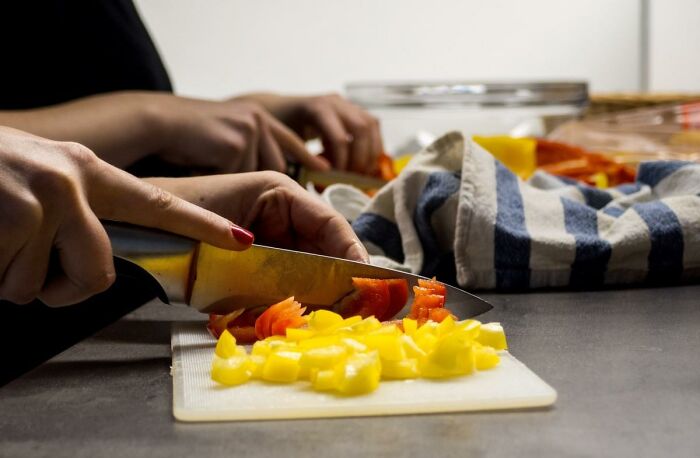 You're probably not using proper knives for what you're cutting, I always catch my wife trying to cut meat with a bread knife. Also sharpen hone them b*tches EVERY TIME you use it.
You're probably not using proper knives for what you're cutting, I always catch my wife trying to cut meat with a bread knife. Also sharpen hone them b*tches EVERY TIME you use it.
One of my friends was visiting with me once and noticed that I had a variety of knives. She asked me why I have so many. I told her that I used them for cutting different things, like a serrated knife for bread, for example. She grabbed my cleaver and told me in her home (she's from Xinjiang in China), the cleaver is the only knife her mom has ever had, and she can cut everything with it. She then used the cleaver to cut the baguette I had bought to have with dinner. She made it look easy.
not a chef but use a piece of aluminum foil or cling film to cover the surface of your guacamole if you have some leftover in a container. don't just wrap it around the rim, actually place it on the guacamole. it goes brown with exposure to air, so if it's covered directly it will last far far longer than just putting the lid back on.
Put the pit in the guac, and only use plastic wrap. Tin foil will react with acids.
Adding oil to a cold pan. Heating up the pan before you add oil prevents food from sticking.
Asking me tons of questions about my job when I'm off and sitting at the bar. This isn't the food network. Most of us only eat hotdogs, hotpockets and pizza when we get off. It isn't glamorous, don't go to culinary school, just wash dishes somewhere. Season at every step, butter makes things good, don't try to skimp there, that isn't why you're fat. Sharp knives(victorinox is a good start). People lose their mind over risotto, its easy to make. You like onions, stop omitting them.
Global knives are probably one of the best knives on the planet for the home chef or professional. They're all stainless steel, including the handle and start super sharp. Good knives aren't cheap and cheap knives will only hurt the user.
Duck in a cold pan and heat it up so the skin renders and goes crispy.
I thought the rule was to put duck, skin down, in a hot pan to crisp up the skin.. How would a cold pan, slowly heating up do that?
Don’t make croissants before everything else. My mama thought me that also, there is such thing as too much cheese.
I beg to differ. (As long as we’re talking real cheese, not Organic American Play-doh cheese.)
To cook bacon in the oven, start with a cold oven. Then rotate the baking sheet halfway through cooking for delicious, crispy bacon.
I've tried cooking bacon in the oven but I'm not sure if it's just not a good idea in electric ovens or what...it's always either too rubbery or really over done. It's not a timing issue... I've tried putting another pan on top to keep it flat, I've tried taking it out earlier or later to compensate but it just doesn't taste right. It seems like this method works best in a convection or gas oven.
How about simply chopping onions. It’s literally one of the easiest things to do if you use the natural anatomical structure of the onion in your favor. Most people hack it into oblivion, which not only takes much, much longer, but also results in unnecessarily sad-looking onions. Plus it makes you cry.
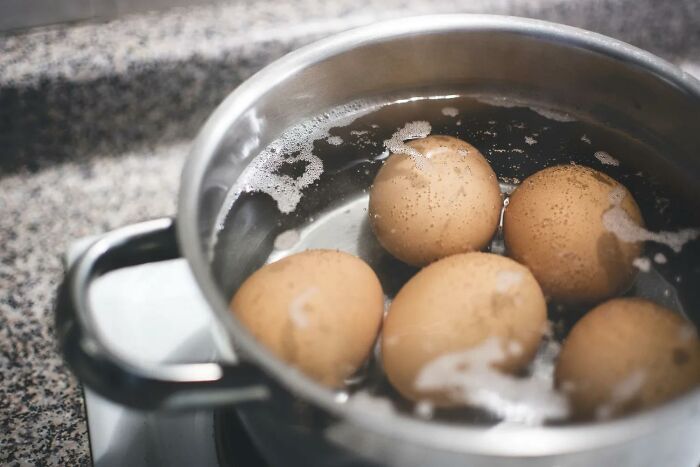 Overcooking eggs. If the water comes out of it, they are overcooked. Some people see wetness and think. Oh lemme cook that out.
Overcooking eggs. If the water comes out of it, they are overcooked. Some people see wetness and think. Oh lemme cook that out.
Water in eggs? Am I missing something? I thought an egg was shell, yolk, white and air.
Using a microwave. If you do have to use one half the power and double the time but check its hot all the way through before serving.
The most important thing when boiling eggs is to put them in water that's already boiling, not cold water. This way, the skin doesn't fuse the shell and insides together.
My grandmother taught me to always put a little bit of salt in sweet things and a little bit of sugar in savoury things. It does really help bring out the flavours of both.
My mum (rip) always put 2 chocolate chips in with any beef-based sauce. She was the best.
Load More Replies...Heart disease runs in my dads family, so grew up on a low to no salt diet. I continued this into my adult hood. As a consequence I now have a salt deficiency that is worse than someone who has too much salt. I have to take a prescription grade tablets of a type of sodium chloride daily since my system can no longer absorb and maintain sodium levels.
I can relate, but my doctor figured out what was going on before I had to take pills. Just adjusting my diet.
Load More Replies...My grandmother gave me these five rules for cooking and they have served me very well my entire life: 1. Sharpen your knives; 2. Fresh is best; 3. Season high; 4. Taste everything at every stage; 5. Clean as you go.
All the comments about salting foods. My Dad has had several strokes, salt is a major no no, food should reflect dietary needs and health concerns but you see all these television chefs cooking "healthy" food and throwing in handfuls of salt.
The latest research shows that salt doesn't have that much effect on health after all. In terms of heart disease, strokes, blood pressure, etc. the difference between a low salt and a high salt diet makes <5% difference.
Load More Replies...One of the important ones I didn't see listed, NEVER TRY TO CATCH A FALLING KNIFE!
And don't take a perfectly good nicely seasoned cast iron skillet and ruin it with dish soap and steel wool
Don't blame it on the salt while you are eating like 10 burgers/day! Salt is a very important for our health, specially iodine in it .Keeps our organs to funktion properly.
This list is presented as objective facts from professionals, but for the most part they're just differences in style or taste preferences.
Seems like Liucija is having writer’s block. Wasn’t this very same thing posted just a few months ago? And the one about different architecture? Usually there’s some new content, but it all looks the same to me
I like the one about trying thing you didnt like before again. My coworker (also a chef) didnt eat fish. He and his wife didnt like it so they never ate it. When cooking fish at the restaurant he was always unsure about it. When we had leftover fish, he ate it and realized he actually likes it. Makes creating new dishes a whole lot easier
As a chef myself I find these useless rules are meant for regular folk who don't know how to cook. Or maybe for 10 year Olds.
"Regular folk who don't know how to cook" is redundant. --A Regular Person
Load More Replies...The difference between a meal that's taste "meh" and great is often salt and seasoning.
I grew up on salty, Spicy (but not hot spice) foods - Hungarian - and I can tolerate salt very well. I’ve never had heart disease or high blood pressure and I eat salty food everyday.
Would've been better without half of the chefs swearing unnecessarily like unsupervised preteens. Makes it hard to take one seriously.
Would have been a much better article without all the profanity. Not sure the cooking mistakes rose to the level requiring so much anger and vulgar language.
My grandmother taught me to always put a little bit of salt in sweet things and a little bit of sugar in savoury things. It does really help bring out the flavours of both.
My mum (rip) always put 2 chocolate chips in with any beef-based sauce. She was the best.
Load More Replies...Heart disease runs in my dads family, so grew up on a low to no salt diet. I continued this into my adult hood. As a consequence I now have a salt deficiency that is worse than someone who has too much salt. I have to take a prescription grade tablets of a type of sodium chloride daily since my system can no longer absorb and maintain sodium levels.
I can relate, but my doctor figured out what was going on before I had to take pills. Just adjusting my diet.
Load More Replies...My grandmother gave me these five rules for cooking and they have served me very well my entire life: 1. Sharpen your knives; 2. Fresh is best; 3. Season high; 4. Taste everything at every stage; 5. Clean as you go.
All the comments about salting foods. My Dad has had several strokes, salt is a major no no, food should reflect dietary needs and health concerns but you see all these television chefs cooking "healthy" food and throwing in handfuls of salt.
The latest research shows that salt doesn't have that much effect on health after all. In terms of heart disease, strokes, blood pressure, etc. the difference between a low salt and a high salt diet makes <5% difference.
Load More Replies...One of the important ones I didn't see listed, NEVER TRY TO CATCH A FALLING KNIFE!
And don't take a perfectly good nicely seasoned cast iron skillet and ruin it with dish soap and steel wool
Don't blame it on the salt while you are eating like 10 burgers/day! Salt is a very important for our health, specially iodine in it .Keeps our organs to funktion properly.
This list is presented as objective facts from professionals, but for the most part they're just differences in style or taste preferences.
Seems like Liucija is having writer’s block. Wasn’t this very same thing posted just a few months ago? And the one about different architecture? Usually there’s some new content, but it all looks the same to me
I like the one about trying thing you didnt like before again. My coworker (also a chef) didnt eat fish. He and his wife didnt like it so they never ate it. When cooking fish at the restaurant he was always unsure about it. When we had leftover fish, he ate it and realized he actually likes it. Makes creating new dishes a whole lot easier
As a chef myself I find these useless rules are meant for regular folk who don't know how to cook. Or maybe for 10 year Olds.
"Regular folk who don't know how to cook" is redundant. --A Regular Person
Load More Replies...The difference between a meal that's taste "meh" and great is often salt and seasoning.
I grew up on salty, Spicy (but not hot spice) foods - Hungarian - and I can tolerate salt very well. I’ve never had heart disease or high blood pressure and I eat salty food everyday.
Would've been better without half of the chefs swearing unnecessarily like unsupervised preteens. Makes it hard to take one seriously.
Would have been a much better article without all the profanity. Not sure the cooking mistakes rose to the level requiring so much anger and vulgar language.

 Dark Mode
Dark Mode 

 No fees, cancel anytime
No fees, cancel anytime 






